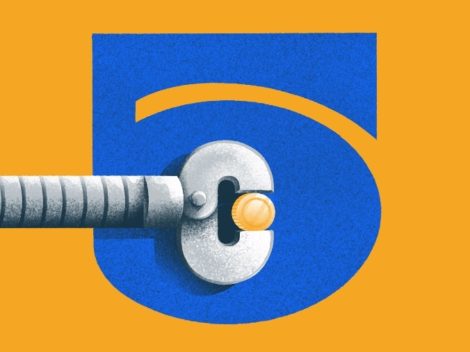E-commerce fintech company Katapult is now a publicly traded company following the close of its special-purpose acquisition with FinServ Acquisition Corp.
Subscribe to the Crunchbase Daily
The New York-based company’s shares flipped over Thursday to the ticker symbols KPLT and KPLTW on the Nasdaq Stock Market. Shares opened at $14 and closed at $13.61 per share, down 6 percent, according to Yahoo Finance.
Since its inception in 2014, Katapult has raised $286 million in total known venture capital investments, most recently a $13.5 million venture round in 2017, led by CURO Financial Technologies and MissionOG. Other prominent investors include Blumberg Capital and Tribeca Venture Partners.
Katapult is focused on the “buy now, pay later” space (BNPL), that heated up during the global pandemic. Affirm, one of its partners, went public in January and is trading at $62.70 as of Thursday. Meanwhile, Sweden-based payments competitor Klarna announced Thursday it raised $639 million in funding, led by SoftBank’s Vision Fund 2, bringing the company’s post-money valuation to $45.5 billion.
David Blumberg, founder and managing partner at Blumberg Capital, said via email that e-commerce is growing faster than physical retail, and BNPL is growing even faster.
“BNPL is transforming how consumers finance their purchases online and democratizes the e-commerce economy,” Blumberg added. “As e-commerce activity continues to rise, BNPL will be a key opportunity for innovation at checkout for retailers and a mainstream financing option for consumers.”
Katapult CEO Orlando Zayas continues to lead the company and spoke to me about competitiveness in the BNPL space and how being publicly traded will benefit it going forward.
The following was lightly edited for clarity and length.
Why did you decide to go public via a SPAC?
Zayas: Last August we were performing well, and one of our competitors made an offer on the company, so we decided, instead, to see what the market would bear. We hired an investment banker to see what the options were, and one was a SPAC. It was appealing because of the speed you can do it, and that can be both good and bad, but I liked that approach because there were timelines you had to meet. From a business perspective, as a public company we can show retailers a strong company and they can see our financials. It also gives us good PR to get our name out there to major retailers.
How does this help your growth?
Zayas: As mentioned, it gives retailers, especially larger ones, a chance to see that we are profitable — a real company. It also opens up the capital markets, and we will have a lot of cash on our balance sheet. The PIPE (private investment in public equity) yielded $50 million that will go on our balance sheet for M&A, investing in the business and new products, and developing technology. It opens a lot of doors that would have been difficult as a private company.
The BNPL is exploding. What’s your take?
Zayas: It is crazy and exciting. E-commerce has your installments, like Affirm and Klarna, stretching payments out. Then you have the four-pays, like us, which is where we fit in. However, for larger ticket items, like a refrigerator, it is hard to split it over four payments for a nonprime consumer. We partner with Affirm, so if they are declined, their information will come over to us, and we will work on getting them access to the same goods a prime customer would get.
What do you consider your competitive advantage?
Zayas: We integrate on a waterfall basis, especially with our partnership with Affirm. If they are declined there, it comes to us, and we can hopefully get an approval in less than five seconds. We have to streamline the process. Affirm asks for seven pieces of data, so we have to make it fast, easy and quick, but also have clarity and transparency so the customer knows exactly what they are paying, when and over how much time.
Competitors, including Kafene, raised money this week, focusing on the subprime market. You work with nonprime customers. Is this ushering in a new trend?
Zayas: Our mission over the next few years is looking at other products, such as nonprime, because they have been overlooked and passed over and don’t have access to the high-quality retailers as others do. If there are other products that can help, we will look at that.
Illustration: Dom Guzman

Stay up to date with recent funding rounds, acquisitions, and more with the Crunchbase Daily.



![Illustration of a guy watering plants with a blocked hose - Global [Dom Guzman]](https://news.crunchbase.com/wp-content/uploads/quarterly-global-3-300x168.jpg)
67.1K Followers